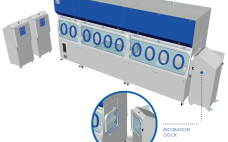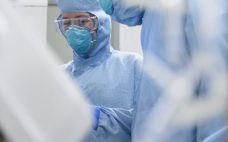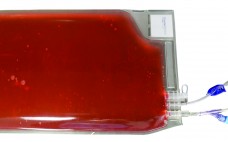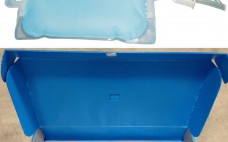The rapidly developing global cell therapy market poses numerous industry challenges for drug development, process scalability, commercialization, and patient safety. The processes of procuring human tissue for clinical applications are fraught with many technical, ethical, and legal issues. Allogeneic cell therapies involving primary cell types such as bone marrow mesenchymal stromal/stem cells (BM-MSCs), hematopoietic stem and progenitor cells (HSPCs), and T and NK cells for immunotherapy applications are especially challenging due to the vigorous process of screening and qualifying human…
Cell Therapies
Assuring Multipotency of human Mesenchymal Stem Cells (hMSC)
Over the past decade, stem cell research has provided new avenues for deeper investigation into tissue repair and aging processes, as well as regenerative medicine methods. One of the major players in such research endeavors are mesenchymal stem cells (MSC), also known as mesenchymal stromal cells. MSC are typically found in bone marrow, adipose, placental, and umbilical cord tissues1 and are a type of adult stem cell. In vivo, these cells are headquartered in special microenvironments or “niches” in the…
Cell & Gene Therapies: A Guide to Single-Use Connections. 10 Transferable Lessons from the Bioprocessing Industry
It’s time to tackle the challenges of sustainable and cost-effective commercial manufacturing regarding cell and gene therapy. Cell and gene therapies have many of the same manufacturing needs as biopharmaceuticals. As a result, industry experts expect single-use technologies used in biopharmaceutical clinical trials and commercial production to play a larger role in the future development and production of cell and gene therapy. Single-use systems are already incorporated in the development of cell and gene therapies today. However, many of those…
Isolator advantages in Cell Therapy Production
With numerous cellular and gene therapy products seeing strong initial clinical successes, investment in next-generation technologies by both large bio/pharma companies and start-up specialist firms has been significant. In fact more than 750 companies worldwide declare themselves to be in the “regenerative medicine” market space, with a high percentage of year on year increases in the number of cellular and gene therapy drugs in clinical trials. Many of these companies are eager to advance from early stage clinical trials to…
Filling Industry Gaps with Dedicated Cell Therapy Fluid Transfer Sets
For years, availability has cornered cell therapy manufacturers into utilizing transfer sets intended for other industries and applications. These transfer sets or accessory sets are not designed for cell therapy, and therefore lack key requirements, essential to clinical and commercial manufacturing. Many current personalized cell therapies are highly manual in practice, and require numerous ancillary components and handling steps. Modifications to these processes further complicate this inherently challenging process. These deviations impact the reproducibility of the manufacturing platform, as well…
A summary of how to develop a cell therapy from concept to market authorization
Cell therapies offer new opportunities for the treatment of disease and injury but considerable infrastructure and a complex range of activities and expertise are required to translate a promising cell therapy product into clinical use. Suppliers, developers, regulators, and care givers need to interact cooperatively in order to bring therapies to patients in the most efficient, safe, and economically viable way and GE Healthcare is working with the Karolinska University Hospital to investigate more effective routes for bringing potential cell…
Efficacy and Utility of New EXP-Pak Closed-System Disposable Cell Expansion Bags Designed for Cell Therapy Applications
Clinical cellular therapy applications often times require a cell expansion or maturation step prior to use. Traditionally, cell expansion or cell culture is performed in “open” systems including multi-well culture dishes or tissue culture flasks. These “open” steps present risks and are not ideal for larger-scale manufacturing. The new EXP-Pak™ cell expansion container offered by Charter Medical, Ltd. is a closed-system, gas permeable bag intended for expansion and culture of non-adherent cells. The data demonstrate that the EXP-Pak™ cell expansion…
Freeze-Pak™ STS Bio-Containers and STS Shippers: Offering a New Single-Use Solution for Frozen Storage and Transport to -80°C
Frozen storage is commonly achieved with single-use containers and enables manufacturing process flexibility, long-term product stability and minimizes logistics challenges. While single-use containers are available for storage and transport of frozen products, some require a significant investment while others don’t offer the necessary support and protection. Charter Medical has recently developed a new single-use frozen storage and transport shipping solution designed to complement the single-use Freeze-Pak™ STS (FP-STS) bio-containers which were engineered specifically for frozen storage applications. The bags and…








